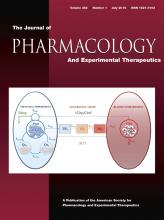Abstract
The potential involvement of intestinal microsomal cytochrome P450 (P450) enzymes in defending against colon inflammation and injury was studied in mice treated with dextran sulfate sodium (DSS) to induce colitis. Wild-type (WT) mice and mice with intestinal epithelium (IE)–specific deletion of the P450 reductase gene (IE-Cpr-null) were compared. IE-Cpr-null mice have little microsomal P450 activity in IE cells. DSS treatment (2.5% in drinking water for 6 days) caused more severe colon inflammation, as evidenced by the presence of higher levels of myeloperoxidase and proinflammatory cytokines [tumor necrosis factor-α, interleukin (IL)-6, and IL-1β], and greater weight loss, colonic tissue damage, and colon shortening, in IE-Cpr-null mice than in WT mice. The IE-Cpr-null mice were deficient in colonic corticosterone (CC) synthesis, as indicated by the inability of ex vivo cultured colonic tissues from DSS-treated IE-Cpr-null mice (in contrast to DSS-treated WT mice) to show increased CC production, compared with vehicle-treated mice, and by the ability of added deoxycorticosterone (DOC), a precursor of CC biosynthesis via mitochondrial CYP11B1, to restore ex vivo CC production by colonic tissues from DSS-treated null mice. Intriguingly, null (but not WT) mice failed to show increased serum CC levels following DSS treatment. Nevertheless, cotreatment of DSS-exposed mice with DOC, which did not restore DSS-induced increase in serum CC, abolished the hypersensitivity of IE-Cpr-null mice to DSS-induced colon injury. Taken together, our results strongly support the notion that microsomal P450 enzymes in the intestine play an important role in protecting colon epithelium from DSS-induced inflammation and injury, possibly through increased local CC synthesis in response to DSS challenge.
Footnotes
- Received January 28, 2015.
- Accepted April 27, 2015.
-
This work was supported in part by the National Institutes of Health National Institute of General Medical Sciences [Grant R01-GM082978].
- Copyright © 2015 by The American Society for Pharmacology and Experimental Therapeutics
JPET articles become freely available 12 months after publication, and remain freely available for 5 years.Non-open access articles that fall outside this five year window are available only to institutional subscribers and current ASPET members, or through the article purchase feature at the bottom of the page.
|






